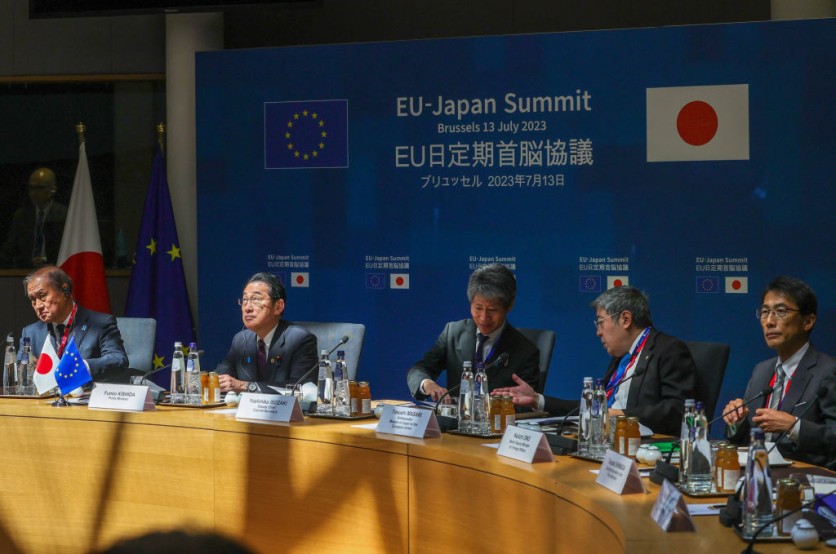The European Union (EU) and Japan have expanded their collaborative efforts in digital technologies following their second Digital Partnership Council held in Brussels.
Co-chaired by EU Commissioner for the Internal Market Thierry Breton and Japanese Minister for Digital Transformation Taro Kono, along with other officials, the council reaffirmed the strategic importance of their partnership.

Digital Identities
The EU and Japan reviewed the progress made since the inaugural Digital Partnership Council in 2023. They identified new areas for cooperation in core digital technologies, including artificial intelligence (AI), semiconductors, 5G, 6G, high-performance computing (HPC), and quantum technology.
A notable outcome of this partnership is signing a Memorandum of Cooperation on digital identities and trust services.
This memorandum aims to align digital identity initiatives between the EU and Japan, streamlining e-commerce processes, reducing bureaucracy, and enhancing efficiency. It is expected to be showcased as a "joint best practice" at the upcoming OECD Ministerial meeting in May 2024.
They have also decided to establish an expert team to develop a research program based on the 2023 Memorandum of Cooperation on Semiconductors. They are now preparing an administrative arrangement to facilitate the exchange of information on public support schemes in this area.
Furthermore, the EU and Japan will intensify their collaboration in high-performance computing (HPC) and explore hybrid Quantum-HPC applications. They aim to identify potential joint projects in basic quantum research. Both partners are also looking into cybersecurity cooperation, focusing on standards and addressing skills shortages.
Another area of joint focus is the development of 6G technologies. The EU and Japan have initiated collaborative research projects and expressed support for global standardization efforts in this space.
Enhanced Cooperation on AI
Additionally, they announced plans to enhance cooperation between the EU AI Office and Japan's AI Safety Institute. They committed to supporting the G7 Hiroshima AI Process and Code of Conduct to establish global governance standards for trustworthy AI.
Both partners reiterated their commitment to the Memorandum of Cooperation signed in 2023 in the realm of secure and resilient submarine cable infrastructures.
They aim to develop direct connectivity links between Europe and Japan via the Arctic to facilitate trusted cross-border data flows and commercial opportunities.
In pursuit of a secure online environment that preserves freedom of expression, the EU and Japan plan to investigate creating a consistent information-sharing platform concerning online platform regulations, aligning with EU directives like the Digital Services and Digital Markets Acts.
The next Digital Partnership Council is scheduled for 2025 in Tokyo, Japan, reflecting the ongoing commitment of the EU and Japan to advancing their digital collaboration.
"Today, we reaffirmed our ever-closer strategic partnership with Japan. Together, we are advancing interoperability and cooperation on digital identity, data, emerging technologies, semiconductors, AI and online platforms," Breton said in an official statement.
"Working towards common standards will facilitate seamless digital exchanges, support innovation and competitiveness and create further opportunities for our economies."

![Apple Watch Series 10 [GPS 42mm]](https://d.techtimes.com/en/full/453899/apple-watch-series-10-gps-42mm.jpg?w=184&h=103&f=9fb3c2ea2db928c663d1d2eadbcb3e52)



